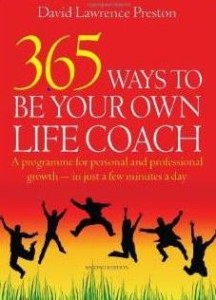Health is a priceless asset that we tend to fully appreciate only when we lose it. But how many people really take care of their health in a holistic sense? We live in a land of plenty and medical knowledge has never been greater, yet ill health and obesity are rampant. How can this be? One of the reasons is that relatively few are willing to take full responsibility for their health.
Accepting responsibility is part of being healthy, and part of the healing process when we get ill.
Those who are willing to work with their health practitioner make better recoveries than those who simply want their doctor to ‘fix’ them. But many people who turn up at practitioners’ consulting rooms are quick to blame events, other people and their genes for their problems, while indulging in unhealthy behaviours that make illness more likely.
Of course, the reasons for illness are many and varied. They may arise from the physical and social environment. However, in the material world, the principle of cause and effect is always with us. Every action has a cause, every actuality has been brought about by contributing causes, and every cause produces an effect.
The prime ‘causes’ are thoughts and imaginings; actions (and their results) are the effects. In other words, life – including our health – responds to what we think, believe, say and do.
If we are unhealthy, we have probably contributed to our situation. Not always, but usually. We may not be aware of what we are doing to ourselves, but we lay down ‘causes’ that shape our lives. Self-empowerment is about being conscious of that fact and becoming aware of what we think, say and do in every moment and how it impacts on us. For:
- We can choose what we think about.
- We can choose where we allow our imagination to roam.
- We can choose to live healthily (or not).
- We can choose what we say and do in response to what happens around us.
Self-awareness
Observe yourself. Listen carefully to your self-talk and see how your core values and beliefs affect you. Carefully note any tendency to:
- Make excuses.
- Dwell on the past.
- Blame others.
- Deny responsibility for your actions and feelings.
- Put off taking the rights steps.
- Allow laziness to interfere with desirable actions.
- Play the ‘victim’.
- Want to be ‘fixed’ without doing anything to help yourself.
- Blame your genes.
- Pretend that you can’t help the way you feel.
And so on.
How much attention do you pay to what you eat and drink, your breathing, exercise patterns and leisure activities, rest and sleep?
Do you live in an energy-healthy environment, full of natural sunlight and fresh air, or one saturated with electromagnetic radiation from wi fi, mobile phones, kitchen appliances and so on?
Do you have an inclination towards negativity? Negative people expect things to go wrong and aren’t surprised when they do. Then they give up.
Obviously it’s quite a challenge to stay positive all the time, especially if you’re ill, but fostering a more positive attitude to life and a belief in recovery can be an important part of the healing process.
No-one else can make your life happen for you. Blaming circumstances (however unfortunate) and other people (however unpleasant) doesn’t change anything; in fact, it makes things worse – you become a victim.
See whatever happens to your health as simply feedback – your body’s response to your habits, your environment and state of mind!
©David Lawrence Preston, 24.5.2016
Follow me on Facebook and Twitter @Feelinggoodatt
How To Books, 2004
[1] It’s different in the quantum world which exhibits discontinuity, nonlocality and entanglement, but this is much too big a subject for this blog.


Leave a Reply